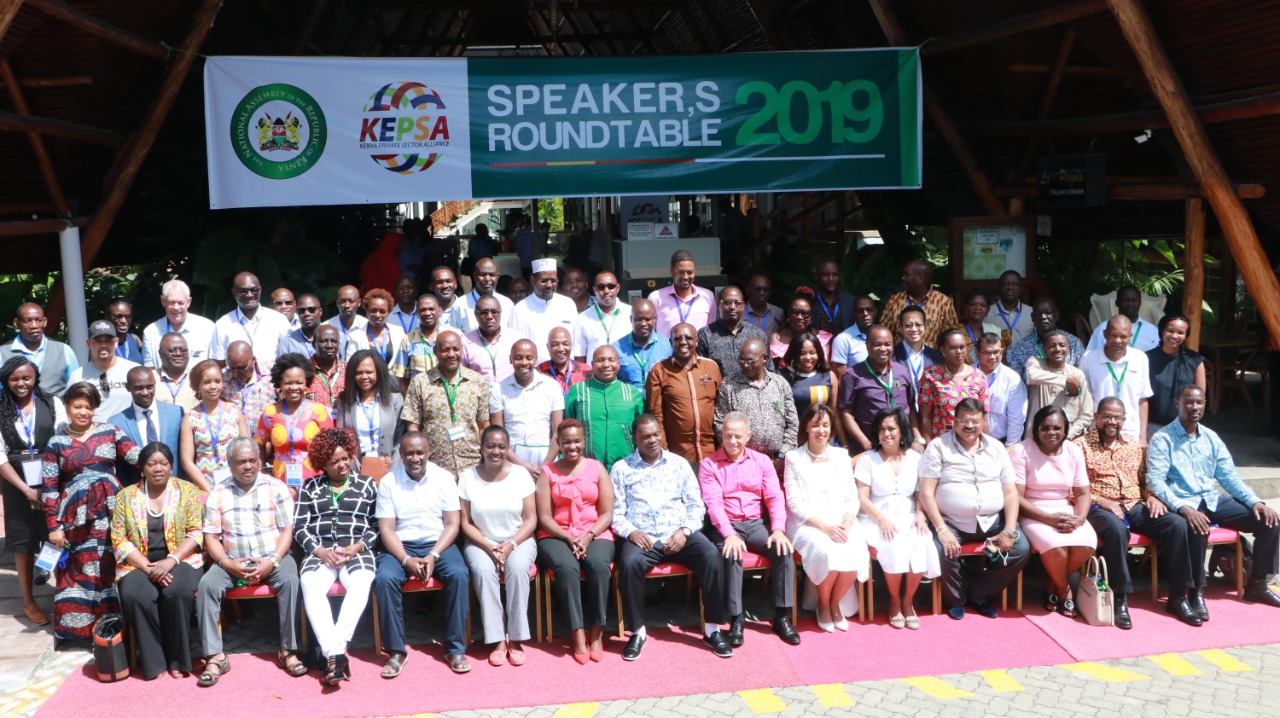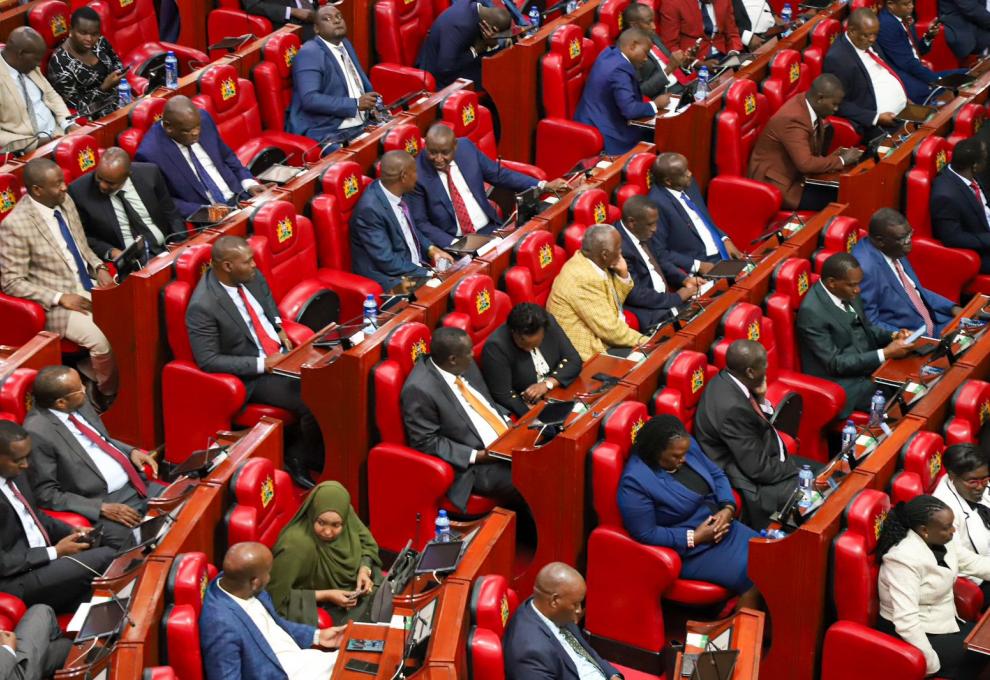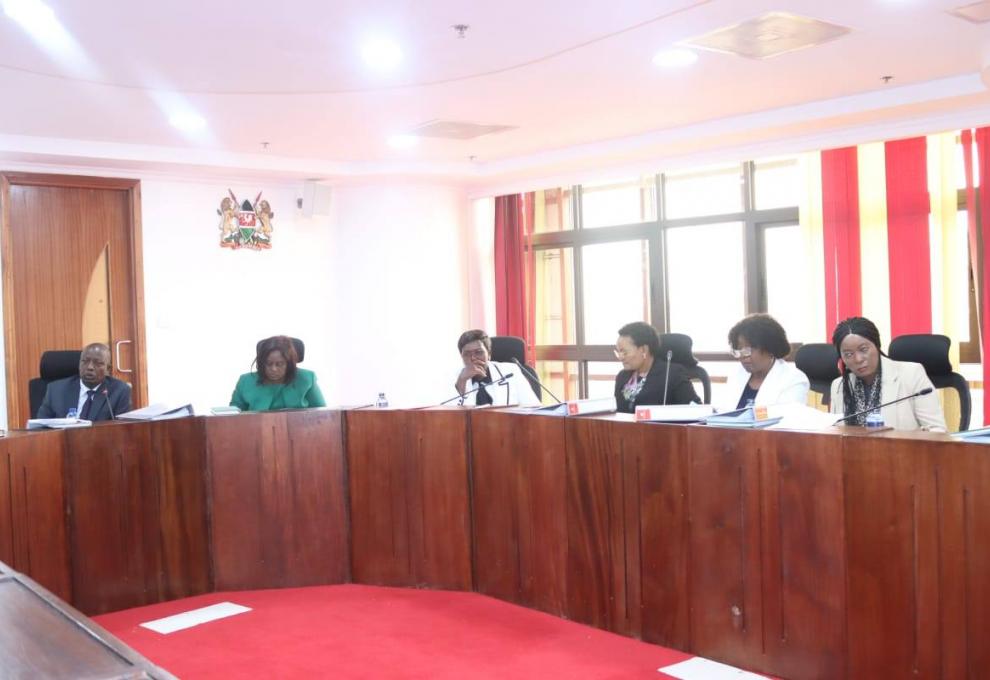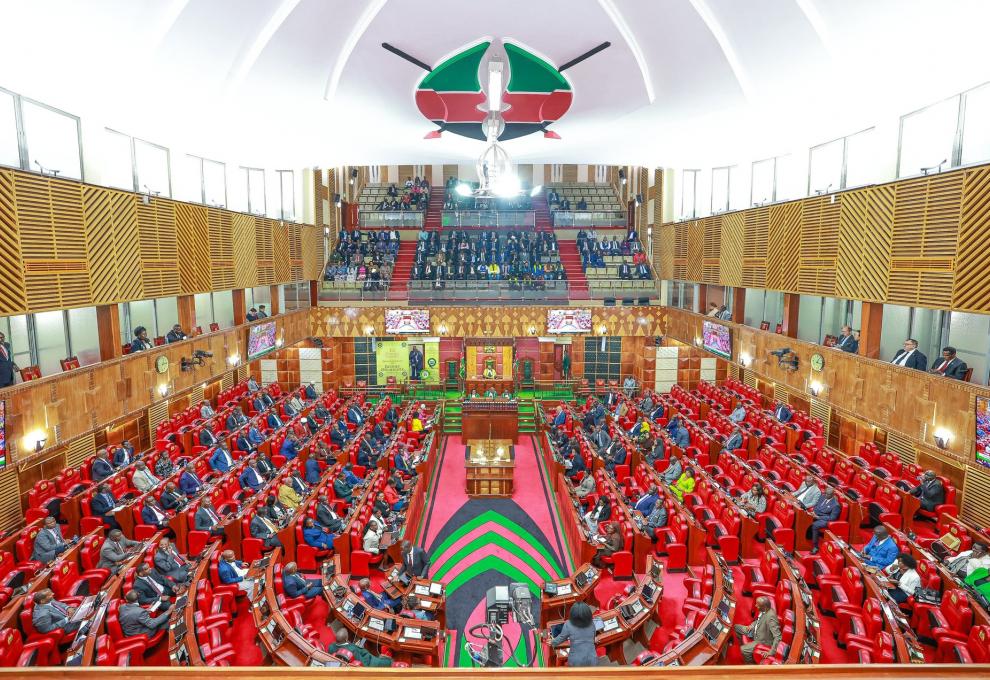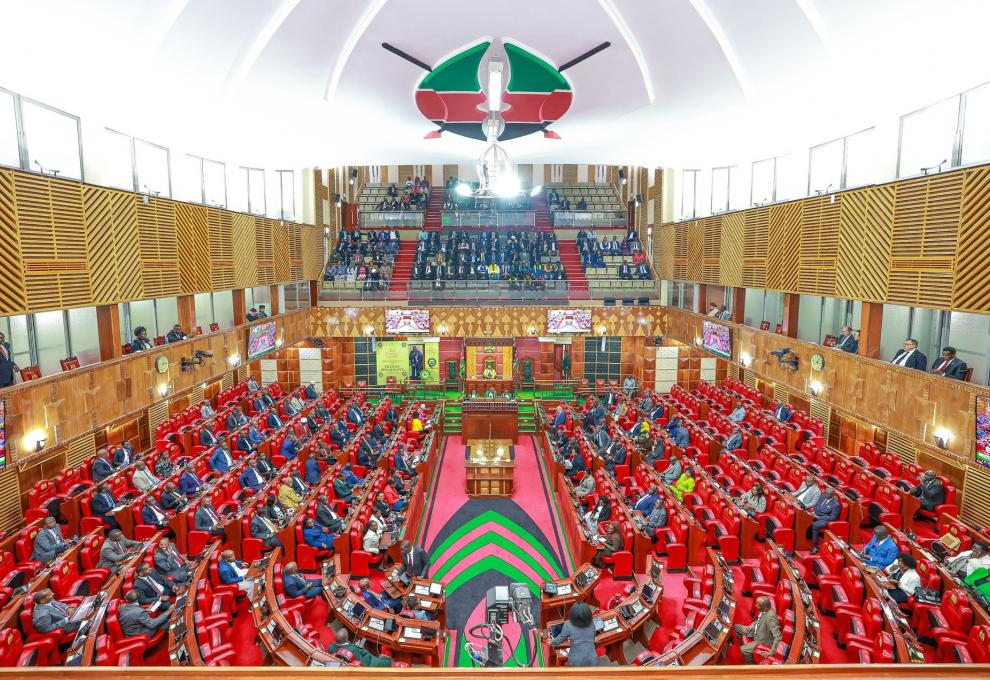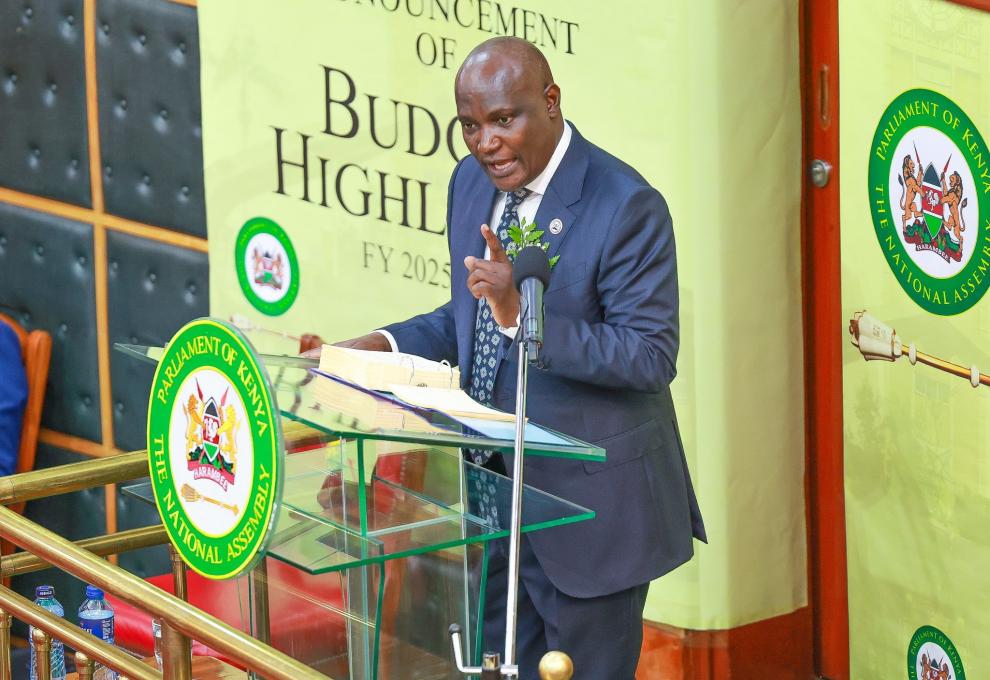Speaker’s Roundtable Casts Spotlight on the Fight against Graft, Job Creation and Enhancing Kenya’s Competitiveness
The 2nd annual engagement between the National Assembly and the Kenya Private Alliance Sector (KEPSA) kicked off today morning, amid calls on the private sector to consolidate efforts towards the war against graft, and to focus on re-engineering their business models to enhance job creation, even as they uphold adherence to the Employment Act.
Speaking while he addressed captains of industry in the private sector and participating Members of the National Assembly, the Speaker of the National Assembly decried the slow implementation of the Bribery Act by the private sector, thereby slowing down the war on graft. He thus urged the forum to walk the talk to assist in the enforcement of this law, which was largely private sector driven.
“May I commend the private sector for initiating the Bribery Act, which was assented into law in January 2017. This relatively new law remains the single most important statute to eradicate the link between the giver and the receiver of sleaze. Whereas corruption has always been associated with government officials, the private sector has for long been accused of being the driver of it. In fact, we are yet to see a single government officer charged with giving bribes. All the cases are about government officers receiving bribes. This is an egg and chicken symbiotic analogy which the new law intended to address”, said Speaker Muturi.
Speaker Muturi also urged the private sector to look at the issue of transfer of tax gains to the Mwananchi, and reprimanded the private sector for being very quick to implement any increase in tax, but dragging their feet when it’s a decrease in taxation.
“When the Energy Petroleum and Regulatory Authority announces an increase in cost of petrol, certainly, try driving your car at a petrol station with one shilling less the increased cost and trust me you will sleep there if you do not have the money to reflect the change in price. But where for instance you hear the cost of maize flour has been reduced through taxation measures, please prepare yourself to continue enjoying your plate of ugali at the same cost without any change in pricing”, he remarked.
And Speaker Muturi was not done yet. He further reprimanded a section of the private sector for skewing and slanting the requirements of the Employment Act through the use of “contract employees”. He lashed out at leading financial institutions and companies who are no longer hiring employees, but outsourcing on contractual basis through agents. He revealed that they in turn as consideration, pay a lump sum to the service providers while employees are hired on meagre amounts, with no annual leave or other benefits as guaranteed by the Employment Act.
He warned that the right to fair labour practices are guaranteed by the Constitution, and called on the private sector to abide by the requirements of Article 41 of the Constitution.
On their part, the Kenya Private Sector Alliance asked MPs to work with the private sector to help identify ways of increasing Kenya’s competitiveness and a reduction of corruption to attract more businesses to the country.
While addressing the forum, the Kenya Private Sector Alliance (KEPSA) Chief Executive Officer Carole Kariuki said investors are attracted by the ease of doing business but held back by Kenya’s bad ranking on competitiveness and bribery.
“If we talk about these three – ease of doing business, the competitive index and the bribery index – we’ll create more jobs, retain more jobs and more companies will come to this country,” said Ms Kariuki.
She added that even as the private sector is willing to fight corruption, investors often find themselves cornered by unscrupulous government officials even after they have fulfilled all legal requirements as they seek to set up businesses in Kenya.
Ms Kariuki also questioned the popular narrative on job losses in Kenya.
“We have companies that have closed, but we have companies that are coming and companies that have expanded. We need to know why those that have come in and have come and why those that have closed have closed,” she said.
Citing the establishment of a vehicle assembly plant in Mombasa by Toyota as an example, Ms Kariuki said the debate on employment in Kenya needs to be informed by a better analysis of the investment environment in the country.
The Speaker’s Roundtable is being held to take stock of progress on the resolutions made last year and to plan for the future and National Assembly Speaker Justin Muturi presented an audit of the progress made showing all have been met.
Mr Muturi said that the National Assembly has over the last year enacted laws to; compel the government to pay its suppliers faster, strengthen the fight against counterfeits, remove Value Added Tax on agrochemicals, expand the tax base and implement the Big Four Agenda. The House is also scrutinising the policy on the Competence Based Curriculum.
“As the representatives of the people, nothing makes us more proud than to see ourselves acting as agents of change by providing solutions to issues of concern to them,” said Mr Muturi.
On his part, KEPSA Chairman Nick Nesbitt said the country needs to grow its middle class even as it looks to ways to grow the economy by 10 percent every year to make Vision 2030 achievable.
“In a developing country like ours, growing at 5.7 percent is not good enough. We need to develop a big and strong middle class. We have two more parliamentary terms before Vision 2030 and we need to know what we shall have done by then,” said Mr Nesbitt.
National Assembly Minority Leader John Mbadi asked the private sector to increase its engagement with the Legislature.
“To increase the size of the middle class, we need to discuss the affairs of this country together. We need to be candid with each other. Tell us where we are going wrong,” said Mr Mbadi.
The two-day meeting is scheduled to discuss ways to increase public-private partnerships, enhance access to credit for the private sector, tax reforms required to increase Kenya’s competitiveness and strengthen Parliament’s role in the oversight of policy implementation.
Among the concerns raised by the private sector are the unpredictable tax regime, multiple and conflicting licencing requirements, and constant harassment by national and county government agencies with arresting powers.
Members of KEPSA and the National Assembly are also scheduled to discuss the high cost of transportation of cargo using the Standard Gauge Railway, challenges at the Inland Container Depot in Nairobi, how to sustain the fight against illicit trade and Excise Duty.
MPs are expected to form small groups to discuss the digital economy, green growth and the circular economy, public and private sector financing and measures to support Micro, Small and Medium Enterprises.
The Speaker’s Roundtable is expected to conclude with the adoption of a set of resolutions on the legislative priorities for the next year to improve the business environment.



